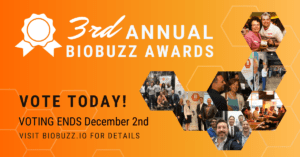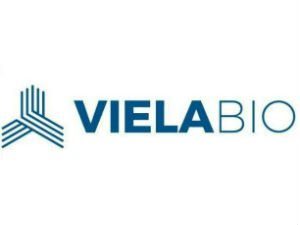
Patent for Patients: A Boon for Cancer Immunotherapy
Hurdles in Current Patent System
Over the recent decades, cancer immunotherapy research has made significant advances. In our continued quest to cure cancer, a commercial incentive is necessary to counterbalance the costs and risks associated with the research and development of cancer immunotherapies and to encourage new inventions. Patent protection serves as the most meaningful solution as applicants are awarded a duration exclusivity for their approved inventions.
According to the United States Patent and Trademark Office (USPTO), it can take approximately 22 months for a patent to be approved following the application filing. While it is advantageous for applicants to draft patents seeking broad claim coverage, this might result in longer review timelines than those requesting narrower claim coverage. The patent review process might also require continuous communication with USPTO examiners and appeals to the USPTO Patent Trial and Appeal Board to determine coverage on broadly drafted claims.
Other factors such as the nature of the patented technology, the breadth of protection being sought, and the quality of the patent application also determine the patent review time. It is important to note that the current term of a patent exclusivity is 20 years from the date on which the application for the patent was filed at the USPTO and NOT from when the USPTO approved the patent. As most to-be patented inventions remain confidential until the patent is approved, lengthy review processes often hinder the progress of inventions themselves.
Several USPTO programs are in place to expedite patent prosecution: (1) Petition to Make Special, (2) Patent Prosecution Highway (PPH), (3) Track One (Prioritized Examination), and (4) Accelerated Examination. Each of these programs is accompanied by its respective fees, advantages, and drawbacks. The costs associated with these programs are separate from other legal fees needed for patent filing and prosecution.
Making Patent Reviews Quicker and More Feasible.
In February 2016, the White House announced a $1 billion National Cancer Moonshot initiative to expedite cancer research and achieve ten years’ worth of cancer research in five. In turn, the USPTO implemented the Patents 4 Patients program, also known as the Cancer Immunotherapy Pilot Program. This program serves as an accelerated review for cancer immunotherapy-related patent applications without the need for applicants to pay a hefty petition fee.
Under this program, patent applications pertaining to cancer immunotherapy will be advanced out of turn for examination, resulting in their accelerated review and approval. This program aims to cut the review time for patent applications pertaining to cancer immunotherapy by half by issuing final decisions within twelve months or less after the USPTO receives them.
Patent applications to the Patents 4 Patients program need to meet certain eligibility criteria for admission into the program:
1. They must be non-reissue, non-provisional utility patent applications filed under 35 U.S.C. 111(a), and international applications should have entered the national stage under 35 U.S.C. 371.
2. They must contain at least one claim drawn to a method of treating cancer using immunotherapy (specify that is encompassing ‘a method of ameliorating, treating, or preventing a malignancy in a human subject wherein the steps of the method assist or boost the immune system in eradicating cancerous cells’).
3. The patent must contain no more than three independent claims and twenty total claims, with no multiple dependent claims. (the complete list of rules and requirements can be found on the USPTO website)
This expedited nature of this program offers several advantages over other USPTO programs. Patents granted into the program receive their first action on the merits, or FAOM (the first substantive examination of the application), within an average of 30 days, which is exponentially quicker than the normal average of 15.4 months.
The program also proves to be economical: under normal circumstances, an applicant seeking an accelerated patent prosecution under the Track One (Prioritized Examination) program would need to cover the additional filing fee of $4,000 (for an entity of 500 or more employees), and $2,000 (for a smaller entity). On the other hand, the fee for the Patents 4 Patients program is “$0” – the only required fee is the normal filing/search and examination fees ($800 for a small entity).
The Patents for Patients program was initially set to expire on December 31st, 2018. Due to its success and the continued interest from various stakeholders, the program was extended by the USPTO until June 30th, 2022. According to a report by the USPTO, as of January 5th, 2021, the program holds a 97% petition grant rate. All program parameters remain effective and already-pended applications that meet the eligibility criteria can even opt into the program!
The Patents 4 Patients program is a fast and efficient way for the USPTO to encourage and expedite patent grant of cancer-related applications. Its organized setup and efficient timeline offers applicants the benefit of receiving a final decision considerably faster than they would normally.
Ultimately, the winners of the program are both the patent applicants (quicker patent approval means a longer period of patent exclusivity for the applicants) and the patients (who benefit from cancer therapeutics making it to the market/clinical trials). An online webinar provides a comprehensive overview of the Patents 4 Patients program. It is led by Duen-Hwa Yan, Ph.D., a patent agent who specializes in biotech, life sciences, chemical, and mechanical fields patent prosecution.
For more information on the program, McBee Moore & Vanik IP represents clients ranging in size from start-ups to large multinational corporations, including research institutes and universities. Contact MMV IP here.
- About the Author
- Latest Posts
Nivedita recently received her Ph.D. from the University of Maryland, Baltimore in biochemistry and molecular biology and an MS in law (patent law). She is passionate about science writing and communication, and is actively involved with the Maryland biotech scene through her work with Women in Bio- Capital Region , AWIS (Baltimore Chapter) and BioBuzz.






